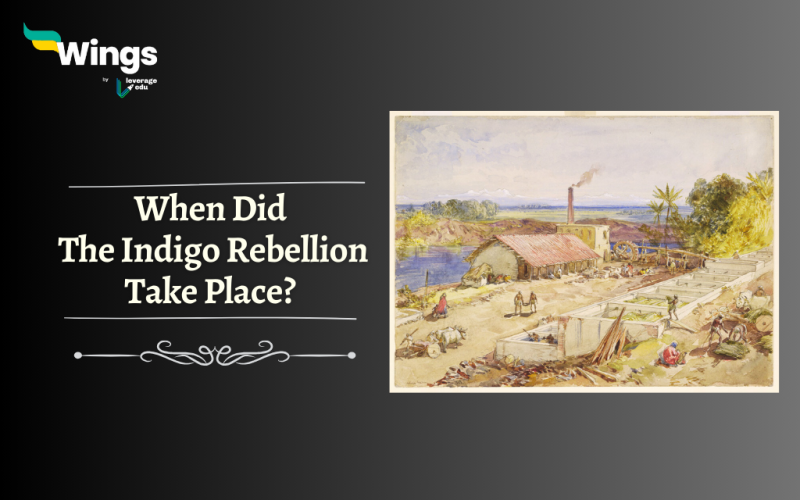The Indigo Rebellion took place in 1859 in the Nadia district of Bengal. It was a revolt of farmers against the British government’s demands to grow Indigo for commercial purposes in unfavourable conditions. Farmers were asked to sign a contract and deliver a certain amount of Indigo to the British planters and if they failed, they were brutally oppressed. It was a year-long revolt begun by Bishnucharan Biswas and Digambar Biswas. Later, the Bengal service class also joined to spread awareness about the rebellion and its cause. Scroll down to learn more about when did the Indigo Rebellion take place?
Historical Background of Indigo Rebellion
It all started in the 1750s when the British East India Company entered India as a trading company and was the first time they stepped into cultivation. Indigo is a plant that is used to dye clothes, and it is a natural way of doing it.
British East India Company asked Indian peasants for Indigo farming, so they could sell it to huge marketplaces of many countries like China, the UK, and Europe at a good price.
Also Read- Who Was The First British to Visit India?
The problem was that the Indigo plantation made the soil infertile and it needed more water than usual crops. Peasants wanted to be a part of rice plantations which is why European planters started paying in advance and making them enter fraudulent contracts. If the peasants were not able to deliver the amount included in the contract, the planters would kidnap their family members, loot their homes, and practice other such things on them.
Outcome of Indigo Rebellion
This made the peasant community of Bengal very angry and hence the Indigo rebellion took place in 1859.
Therefore, the government had to onboard the Indigo Committee to dig deeper into the matter. Moreover, the farmers were already aware of the committee and its decision, so they did not grow indigo. By the end of 1860, all Indigo plantations were wiped out completely.
Related Blogs
This is all related to when did the Indigo Rebellion take place. For more such interesting and informative topics on Indian History and more, stay tuned to our General Knowledge section.
 One app for all your study abroad needs
One app for all your study abroad needs













